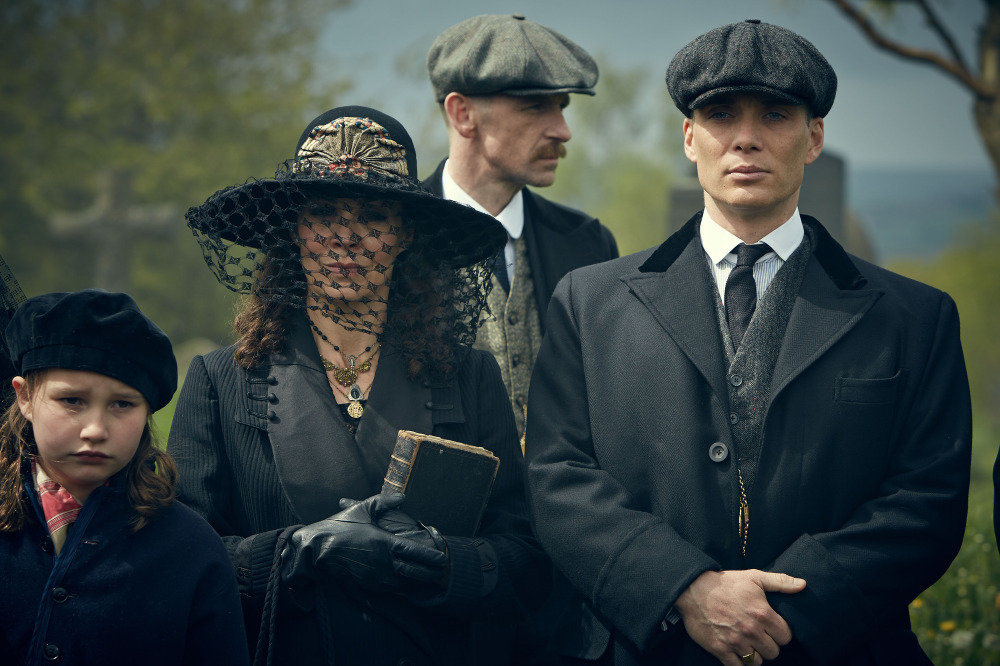Written by Joseph Holgate, who you can follow on Twitter at @joerodholgate
NOTE: This article contains discussion surrounding mental health, which may be potentially triggering for some readers.

Tommy Shelby and his peaky boys have been captivating audiences for almost seven years now. Britain’s favourite cutthroat gangster-turned-MP has enthralled the nation with his intimidating allure, solid demeanour and tactical wit.
From Season One, we watch Tommy and his brothers’ journey from the depths of Small Heath’s working class slums to the wealthiest of Birmingham’s social hierarchy. The glamour of an extremely violent, drug-fuelled and alcohol-hysteric inter-war Britain, ignites our passion for the dangerous and tantalising life of the Peaky Blinders.
However, it is the presentation of the unspoken, misrepresented, and misunderstood issue of mental health that makes the TV show one of the most influential programmes to grace our screens.
Cillian Murphy’s performance as Brummie’s badass bookie should be applauded for the demonstration of his own personal battle with the worst enemy he has ever faced: his own mind.
Mental illnesses, such as depression, can be quite a taboo topic, especially among men. Charities and organisations around the UK encourage men to open up and talk about their feelings rather than to face their inner demons alone. The BBC has taken fantastic measures to showcase the silent killer’s effect on even the most resolute of men.
During the last two seasons of Peaky Blinders, Tommy’s unwavering personality is privately dominated by thoughts of suicide, depression and self-secluded turmoil. Illusions of his late wife Grace, family domestics and external conflicts all prove to be the catalysts of his mental strife. Not even self-prescribed opium or all the gin, rum and whiskey in Great Britain can alleviate his pain.

Like most men and women today, he often hides behind his indestructible shell, plaguing him with the inability to talk about his problems with a trusted confidant. Tommy also quite obviously suffers from the symptoms of depression, as he struggles to sleep and has episodes of infrequent tremors. Despite his anti-heroic steadfast nature, the character is massively relatable to modern-day audiences sat at home, who are potentially fighting a battle with their own mind too. Hopefully, the performance will encourage many men and women to reach out to their loved ones, as no one has to struggle alone.
Peaky Blinders should also be applauded for its presentation of the psychological effects of World War One. Many soldiers suffered from a type of post-traumatic stress disorder known as shellshock. Characters such as Danny Whizbang and Arthur Shelby constantly struggle with their corrupted psychosis, often experiencing unpredictable episodes of rage and violence as a result.
The writers of the show present the illness, also called combat stress or war neurosis, as a valid and coherent affliction. The British Army court martialled thousands for cowardice and desertion because of their misunderstanding of the mental disorder. However, the show excellently depicts the truth. The soldiers were victims of the brutal and inhumane orders of the British High Command and the nightmarish horrors of the great war. Subsequently, many soldiers, including the peaky boys, were burdened with PTSD when they returned to Britain.
The series tackles the contextual stigma of the disorder, and displays how working class victims of the war refused to suffer alone. They were all there for one another. In today’s climate, PTSD is expected to affect one in three people.
With the stigmatic barriers collapsing, people are finally beginning to talk about mental health. Whilst the stats and figures are still extremely high, the use of social media and entertainment platforms are addressing the social taboo that is depression. Encouragement from influential television shows and advertisements are paving the way for a more understanding and compassionate world.
Hopefully, men and women around the world can start to escape from their introvertive shackles and ask for help. It is never okay to suffer in silence, no matter the consequence. Break boundaries and treat each other well. There is always someone to talk to!

If you need someone to talk to, you can ring the Samaritans on 116123.
RELATED: Podcast of the Week - Obsessed With... Peaky Blinders
Tagged in Peaky Blinders

